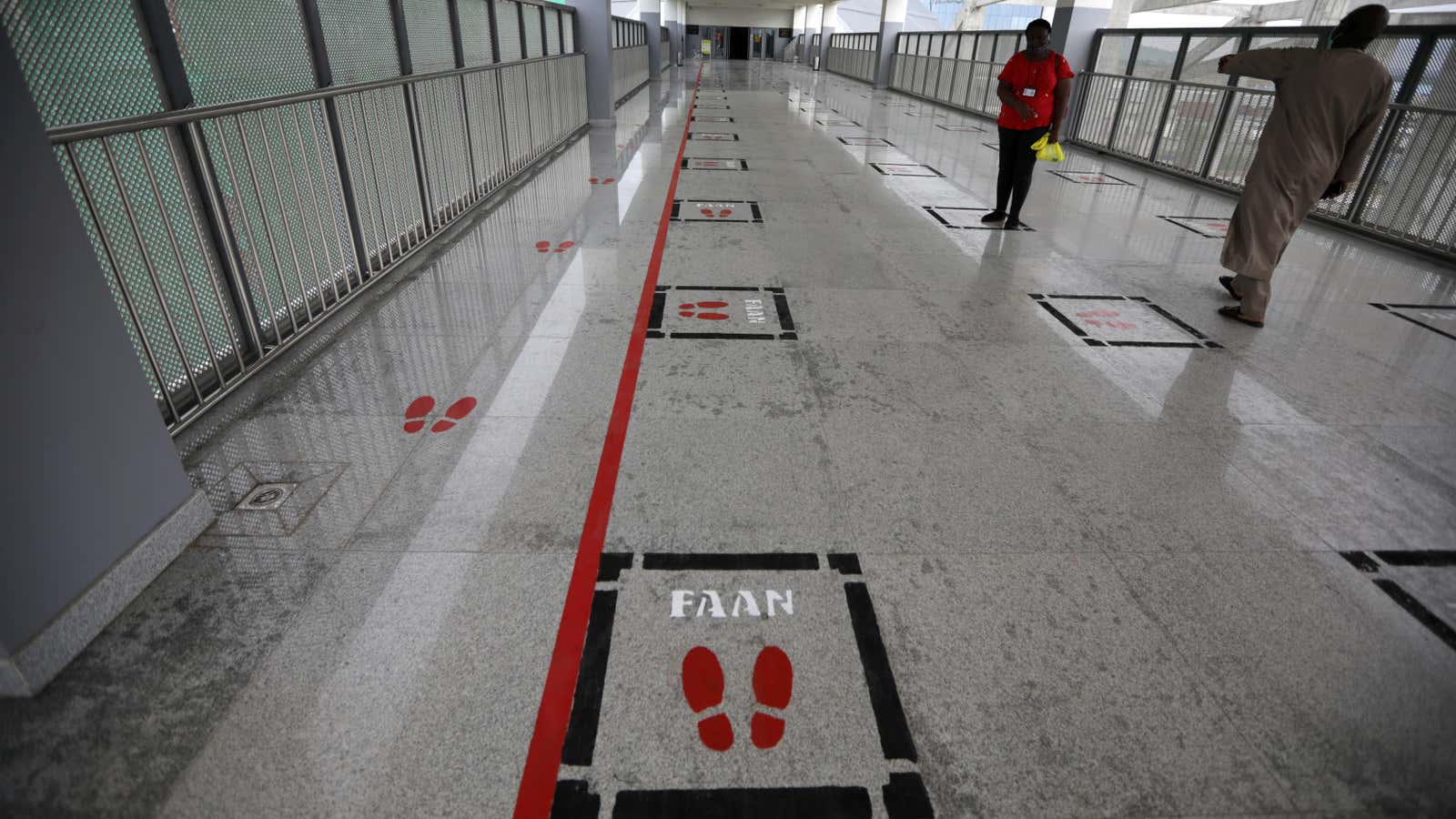The response of several African countries to the threat of coronavirus outbreaks mirrored most of the measures taken globally: strict lockdowns and movement restrictions.
In fact, South Africa’s lockdown came with the deployment of military forces for enforcement as well as a ban on alcohol sales. And in Kenya, restriction measures resulted in incidents of police brutality. The moves triggered debates about just how fitting lockdown restrictions for African countries and a new Afrobarometer report which measured “lockdown readiness” of 34 African countries shows most were ill-equipped for such measures.
The report measured readiness by identifying the number of people that are able to shelter indoors for extended periods by ascertaining three factors across households: the availability of key amenities (running water, working toilets, and electricity), the availability of media devices and phones to access information and maintain communications as well as ownership of savings accounts or rate of formal employment.
Households that ticked off all three indicators were considered “fully ready” for lockdowns while those that only had access to amenities without the other two factors were deemed only “partially ready.”
Of the countries surveyed, only four—Mauritius, Tunisia, Morocco, and Cape Verde—had over 50% of respondents classified as fully ready. On average, only 24% of respondents across the 34 countries analyzed met all three criteria. The report captures the lack of readiness in some of Africa’s largest economies with South Africa, Nigeria, Kenya, and Ghana all scoring below 50%.
Despite early implementation of lockdowns, African countries have recorded over 1.3 million cases of Covid-19 as well as over 32,600 deaths. The case rate has been attributed to low levels of testing across most African countries yet research suggests the impact of the pandemic (in terms of fatalities) has been tempered by Africa’s relatively young population.
While Afrobarometer’s report offers data, the lack of readiness was pretty much highlighted in real-time amid the lockdowns as the dependence of the informal economy workers on day-to-day, cash-based commerce for survival ultimately undermined the effectiveness of Covid-19 restrictions.
Africa’s economies are dominated by their informal sectors which account for between 30% to 90% of all non-agricultural job and more than 40% of many African countries’ gross domestic product. In Nigeria—Africa’s largest economy, the lack of adequate, government-led social welfare interventions resulted in ordinary citizens bridging the gap through food banks and online donations. In a rare bright spot however, the social welfare crisis birthed a new, rapidly adopted digital cash transfer program in Togo through which the government paid $4.3 million to its poorest citizens within the first week of its launch.
Sign up to the Quartz Africa Weekly Brief here for news and analysis on African business, tech, and innovation in your inbox
